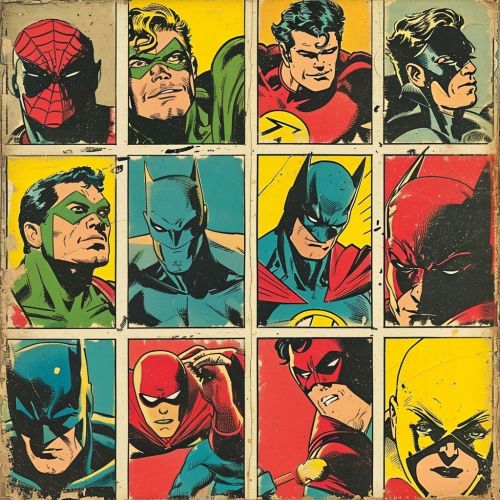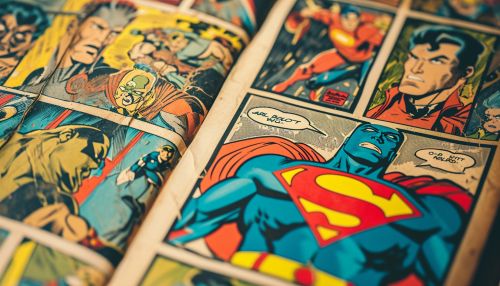Comic Book History
Origins of Comic Books
The history of comic books can be traced back to the 18th century in Japan, where a form of comic book storytelling known as kibyoshi was popular. The kibyoshi were picture books that combined art and text to tell a story, much like modern comic books. The first known comic book in the Western world was 'The Adventures of Obadiah Oldbuck', published in 1837 in Europe and later in the United States.


The Golden Age of Comic Books (1938–1950)
The Golden Age began in 1938 with the introduction of Superman in Action Comics #1 by DC Comics. This period saw the creation of many of the genre's most iconic characters, including Batman, Wonder Woman, and Captain America. The Golden Age was characterized by a focus on superhero stories, and the comic book industry experienced a significant boom in sales during World War II.
The Silver Age of Comic Books (1956–1970)
The Silver Age began in 1956 with the introduction of a new version of The Flash in Showcase #4 by DC Comics. This period saw a resurgence of superhero stories, with a focus on science fiction themes and more complex storytelling. The Silver Age also saw the rise of Marvel Comics, which introduced characters such as Spider-Man, the X-Men, and the Fantastic Four.
The Bronze Age of Comic Books (1970–1985)
The Bronze Age was characterized by a shift towards darker and more socially relevant storylines. This period saw the introduction of anti-heroes and the exploration of political and social issues within the medium. The Bronze Age also saw the rise of independent publishers, such as Dark Horse Comics and Image Comics, which offered alternatives to the superhero-dominated output of DC and Marvel.
The Modern Age of Comic Books (1985–present)
The Modern Age is characterized by a diversity of genres and styles, as well as a focus on character development and continuity. This period has seen the rise of graphic novels, which are longer, complete stories that are often aimed at mature audiences. The Modern Age has also seen the increasing popularity of manga, a style of comic book storytelling originating from Japan.
Impact and Influence of Comic Books
Comic books have had a significant impact on popular culture, influencing other mediums such as film, television, and video games. They have also been used as a tool for social commentary and have been recognized for their artistic merit. Despite periods of controversy and criticism, comic books have remained a popular form of storytelling, with a dedicated fanbase and a significant presence in the global entertainment industry.
